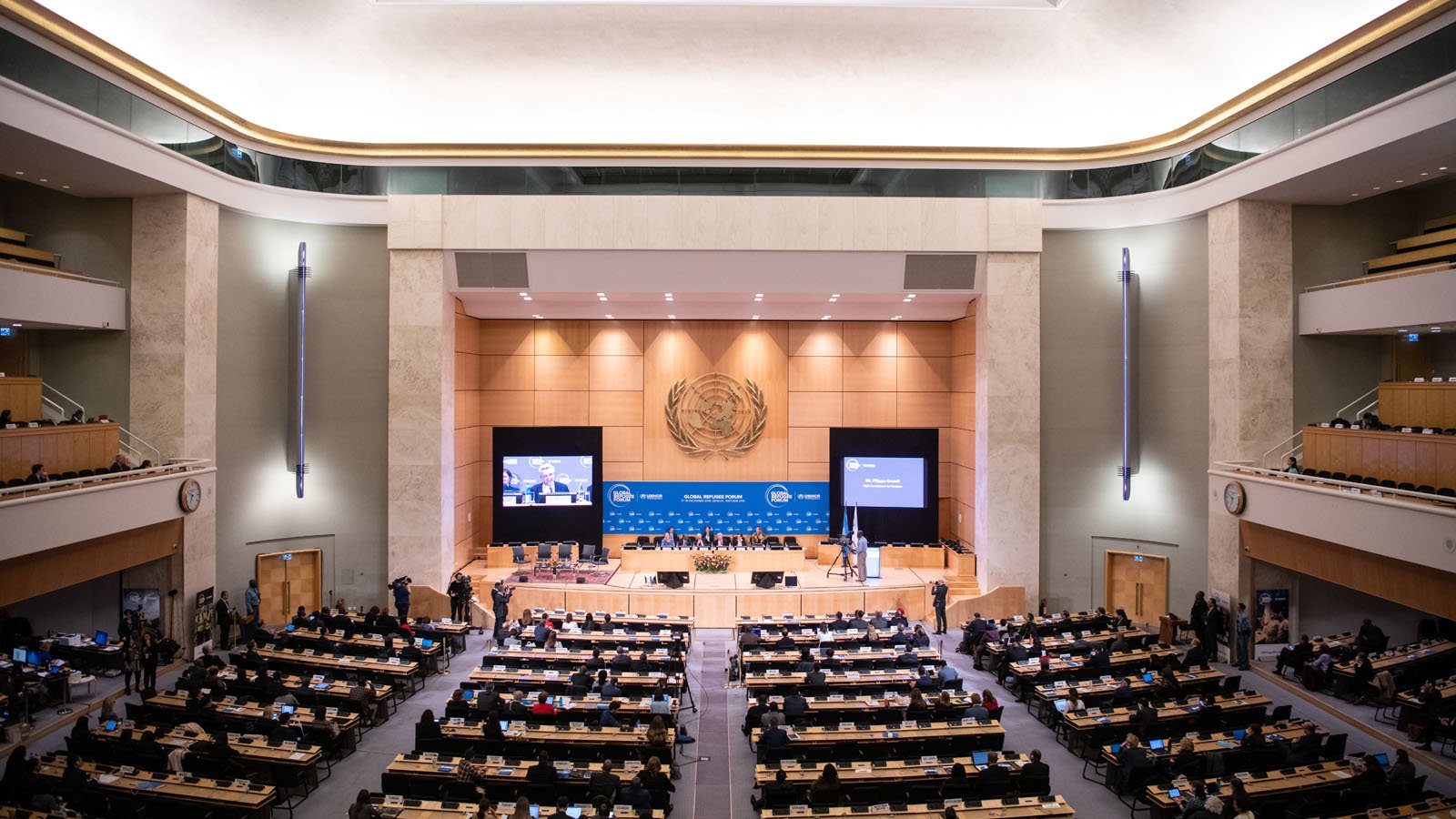Refugee policy: international cooperation put to the test
At the Global Refugee Forum in Geneva, the international community will discuss how it can better protect refugees. Evident solutions have until now received too little attention.
From December 13 to 15, 2023 in Geneva, the United Nations will be hosting the Global Refugee Forum (GRF), the world's largest conference on international refugee policy. In 2018, the UN General Assembly adopted the Global Compact on Refugees, taking a long overdue step towards more sharing of responsibility for refugees on an international level and improving their situation. Since then, numerous new crises and conflicts have driven millions more people to flee their homes – whether Russia’s war on Ukraine, the increasingly chaotic conditions in Venezuela or the quasi-collapse of Sudan. Five years after the adoption of the compact, the Global Refugee Forum is now set to review for the second time how its implementation is progressing and to identify new ideas and solutions for better international cooperation. At the forum, the Robert Bosch Stiftung is working with numerous partner organizations for concrete improvements in international refugee protection.
Creating more options for refugees
Responsibility for refugees currently rests heavily on the shoulders of countries neighboring a conflict. All too often, refugees lack long-term prospects. In acute crises, flexible approaches that give refugees greater scope for decision-making have also proven valuable – helping host organizations and refugees alike. One example is the European Union’s Temporary Protection Directive, which the EU activated after the Russian attack on Ukraine in February 2022. This enabled Ukrainian refugees to travel quickly and unbureaucratically to friends, family or other hosts in various European countries, as well as to places where they had a good chance of finding a job. This in turn reduced the pressure on accommodations and support services in the immediate border states such as Poland.
"The Global Refugee Forum in Geneva should identify solutions for how we can offer refugees more options and thus also better share responsibility internationally."
The initiative "Beyond Territorial Asylum: Making Protection Work in a Bordered World" is a partnership with the Migration Policy Institute to explore new ways to facilitate access to protection that better support equity and results in more flexible, sustainable infrastructure.
Another approach that offers more opportunities to refugees and therefore more agency is to make it easier for refugees to seek employment in other countries. The Global Task Force on Refugee Labor Mobility is an initiative working on this issue. Many refugees are potential employees but are often stuck for years in a country where they lack job prospects. Canada and the UK already have programs that allow refugees seeking work to immigrate, and other countries are in the process of creating such paths.
In order to migrate to a country as a worker, valid travel documents are required. As many refugees do not have these, a "Nansen Passport 2.0", a generally recognized proof of identity for refugees, could be a solution. At the Global Refugee Forum, numerous stakeholders are lobbying states to support this idea.
Another approach to improving refugee protection are so-called "community sponsorship" programs. This involves bringing refugees directly together with communities who are willing to take people in. Hundreds of thousands of people from Ukraine and Afghanistan seeking protection have already found a new home through this approach. At the Global Refugee Forum, we as a foundation are supporting the establishment of a "Community Sponsorship Fund” to expand these programs. This fund is specifically intended to support people who want to take in refugees but who live in lower income countries.
The role that cities play in improving refugee protection is also often overlooked. Most of the world's refugees live in cities. Cities should therefore have a say in international refugee policy – and receive adequate support. The Mayors Migration Council, a long-standing partner of the Foundation, will once again take part in this year's Global Refugee Forum with a delegation of mayors from various parts of the world.
Community Sponsorship of refugees offers a key contribution and innovative solution to migration policy. The Global Refugee Sponsorship Initiative supports the establishment of community sponsorship programs around the world.
Refugees need more say and direct funding
One key deficit in international refugee policy is that refugees have had too little meaningful opportunities for participation. Less than 3 percent of participants at the last Global Refugee Forum were refugees. Their increased participation would not only add more legitimacy to the forum, their perspective and knowledge would also contribute to the development of better political instruments and programs – to the benefit of host societies and for the refugees themselves.
There are now numerous civil society organizations led by refugees that want to become politically engaged. We are committed to ensuring that they receive more financial support and more opportunities for their voices to be heard. So far, only a fraction of the global funding for refugees has gone to the organizations led by refugees, even though they do vital work on the ground and usually know best what refugee communities need. Together with Open Society Foundations, the Robert Bosch Stiftung is supporting "R-Space" at the Global Refugee Forum, a place for discussions and networking on the topic of refugee leadership and participation – developed and created by various refugee-led organizations.
The Mayors Migration Council empowers and enables cities to engage in migration diplomacy and policymaking at the international, regional and national level. The aim is to ensure that global responses to migrant and refugee issues both reflect and address realities on the ground for the benefit of newcomers and the communities that receive them.

